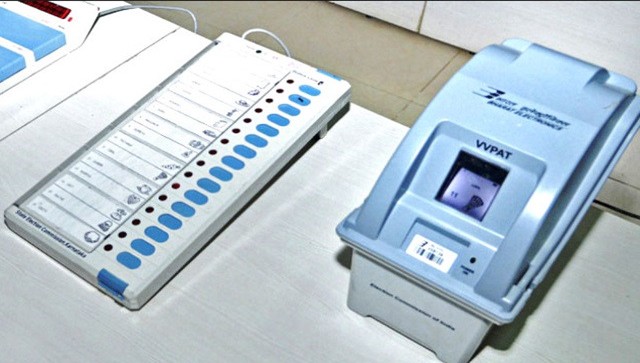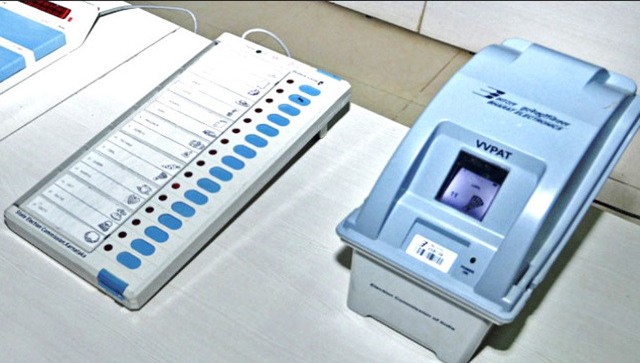Postal voting is a type of voting in elections whereby Electronically Transmitted Postal Ballot Papers (ETPB) are distributed to electors and returned by post, in contrast to electors voting in person at a polling station via an electronic voting system aided by Electronic Voting Machines (EVMs). However, postal voting refers only to the means by which the ballots are submitted, not to the method by which the votes are counted. These are counted first but along other votes at the time of counting during the elections.
While India has a system in place for postal ballots, it is restricted to certain categories of people.
Who all can vote through postal ballots?
According to the Election Commission (EC) of India , the facility is available to a service voter — that is a voter having a service qualification.
According to the provisions of sub–section (8) of Section 20 of Representation of People Act, 1950, service qualification means – (a) Being a member of the armed forces of the Union; or (b) Being a member of a force to which provisions of the Army Act, 1950 (46 of 1950), have been made applicable whether with or without modification ; (c) Being a member of an Armed Police Force of a State, and serving outside that state; or (d) Being a person who is employed under the Government of India, in a post outside India.
However, while an ordinary elector is registered in the electoral roll of the constituency in which his place of ordinary residence is located, a person having service qualification can get enrolled as ‘service voter’ at his native place even though he actually may be residing at a different place (of posting). He has, however, an option to get himself enrolled as a general elector at the place of his posting where he factually, at the point of time, is residing ordinarily with his family for a sufficient span of time, the EC website states.
Procedure to get oneself enrolled as a service voter
Following are the application forms in which various categories of service voters are to make application for enrollment as a service voter:
Members of Armed Forces – Form 2 Members of Armed Police Force of a State, serving outside that State – Form 2A Persons employed under Government of India on post outside India – Form 3
However, if a service personnel has opted to get himself enrolled as a general elector at the place of his posting, where he is actually residing, he will have to apply in Form 6 like other general electors. To this effect, when a person applies for registration as a service voter in Form 2/2A, he has to submit a declaration in a prescribed format to the effect that he did not get enrolled as an ordinary general elector in any constituency.
The wives of the above-mentioned voters are also allowed to vote through postal ballots. The service voter has to make a statement to the effect in the relevant Form 2/2A/3 that his wife ordinarily resides with him. The wife will be enrolled as a service voter on the basis of the declaration made by her husband in the application form itself submitted by him and no separate declaration / application is required to be made by the wife.
However, the son/daughter/relative/servant etc. residing ordinarily with a service voter cannot be enrolled as a service voter. Nor can be the husbands of female service voters.
The exception of classified voters
Service voters belonging to Armed Forces or forces to which provisions of Army Act, 1950 are applicable, have the option of either voting through postal ballot or through a proxy voter duly appointed by him. A service voter who opts for voting through a proxy is called Classified Service Voter (CSV).
A service voter may appoint (by applying to Returning Officer in Form 13 F of Conduct of Elections Rules, 1961 – Form available at the website of Election Commission) any person as his / her proxy to give the vote on his/her behalf and in his/her name at the polling station. The proxy shall have to be an ordinary resident of that constituency. He/she need not be a registered voter but he/she must not be disqualified to be registered as a voter.
A proxy voter can be appointed in the following two ways:
— If a service voter is at the place of his posting, he has to put his signature in Form 13F before the Commanding Officer of the Unit and then to send the Form to his proxy for affixing his/her signature before a Notary/First Class Magistrate. Thereafter, the proxy can submit the Form to the Returning Officer concerned.
— If a service voter is at his native place, both he and his proxy can sign Form 13F before a Notary/First Class Magistrate and then send to the Returning Officer concerned.
The provision for voting through a proxy is valid till the person making the appointment is a service voter. Once appointed, the proxy will continue until his appointment is revoked by the service voter. The facility of a proxy voter can be revoked and the proxy can be changed at any time or for any number of times by the Classified Service Voter. Thus a Classified Service Voter can revoke and opt back for postal ballot route or even substitute the proxy by intimating the Returning Officer in Form 13G of Conduct of Elections Rules, 1961. Revocation will become effective from the date it is received by the Returning Officer.
Application for appointment of a proxy should be received by the Returning Officer before the last date of filing of nomination papers. An application for appointment of a proxy received after the last date of filing nomination papers cannot be considered for the election in progress, though it will be valid for subsequent elections unless revoked/changed.
A Classified Service Voter cannot be issued postal ballot, instead his/her appointed proxy shall physically come and vote at the polling station which covers the classified voter’s home address.
How does a proxy voter vote?
The proxy can record the vote on behalf of the service voter at the polling station to which service voter is assigned, in the same manner as any other elector assigned to that polling station. The proxy will be entitled to vote on behalf of the service voter, in addition to the vote that he/she may cast in his/her own name if he/she is a registered elector in the constituency, at the polling station to which he/she has been normally assigned.
Issuing voter ID cards to service voters
A service voter is not issued Elector Photo Identity Card (EPIC) as it is a document of identity which an elector has to show at the polling station at the time of casting his vote. As service voters are issued postal ballots or votes through his proxy, they are not required to visit the polling stations personally and therefore the identity card is not issued to them.
How do service voters apply for postal ballots?
Is a service voter required to apply for issue of a postal ballot paper?
The service voter need not apply for the postal ballot, the Returning Officer will himself/herself send a postal ballot paper to him/her through his record office (directly or through the Ministry of External Affairs in the case of a service voter serving outside India).
Other cases
While prisoners are not allowed to vote, people under preventive detention can cast their votes through postal ballots as well.
As of now, there is no provision for voters who have migrated inside the country to cast their votes through postal ballots. If you want to vote in the place you currently stay, you will have to fill up a new voter registration form and ask for your name to be deleted from the old list.
While Non-Resident Indians ( NRIs) are allowed to register as voters from the constituency of their ‘ordinary residence’ (the address for which you have proof like passport, ration card and so on), they will have to vote in person from a polling booth. They are also not allowed to vote through postal ballots. In August, the Lok Sabha passed a bill that proposes to amend the Representation of the People Act, 1951, to enable overseas electors to appoint proxies to cast their votes in elections to the Lok Sabha and state assemblies which is currently pending in the Rajya Sabha.
The postal ballot voting process:
Voting and return of ETBP on receipt of the ETPB and the accompanying papers, the service voter shall -
(a) mark his vote on the ballot paper by putting a cross (X) or tick (v’) against the name of the candidate of his choice as per the instructions in Form 13D. He shall then place the marked ballot paper inside the smaller envelope, close the envelope by gum and paste the label for Form 13B on this envelope. Also, the serial number of the ballot paper shall be noted on the Form 13B at the space provided for the purpose on that envelope, if not already printed thereon.
(b) Fill up the declaration in Form 13A, sign the same and get it attested by the officer designated for attestation.
(c) Place (i) the closed (gummed) smaller envelope (Form l3B) and (ii) the declaration in Form 13A, inside the larger envelope and close the same using gum.
(d) Paste the label for Form 13C on the larger envelope and put signature in the place marked for the signature of the sender.
(e) Dispatch the envelope (Form 13C) back to the RO through the available postal means.
(f) No postage stamp need be affixed on the envelope (Form 13C) if posted within India.
(g) CEO should inform GM Post Office to accept the envelope for speed post delivery to addressee and charges would be paid by the CEO Office.


)




)
)
)
)
)
)
)
)